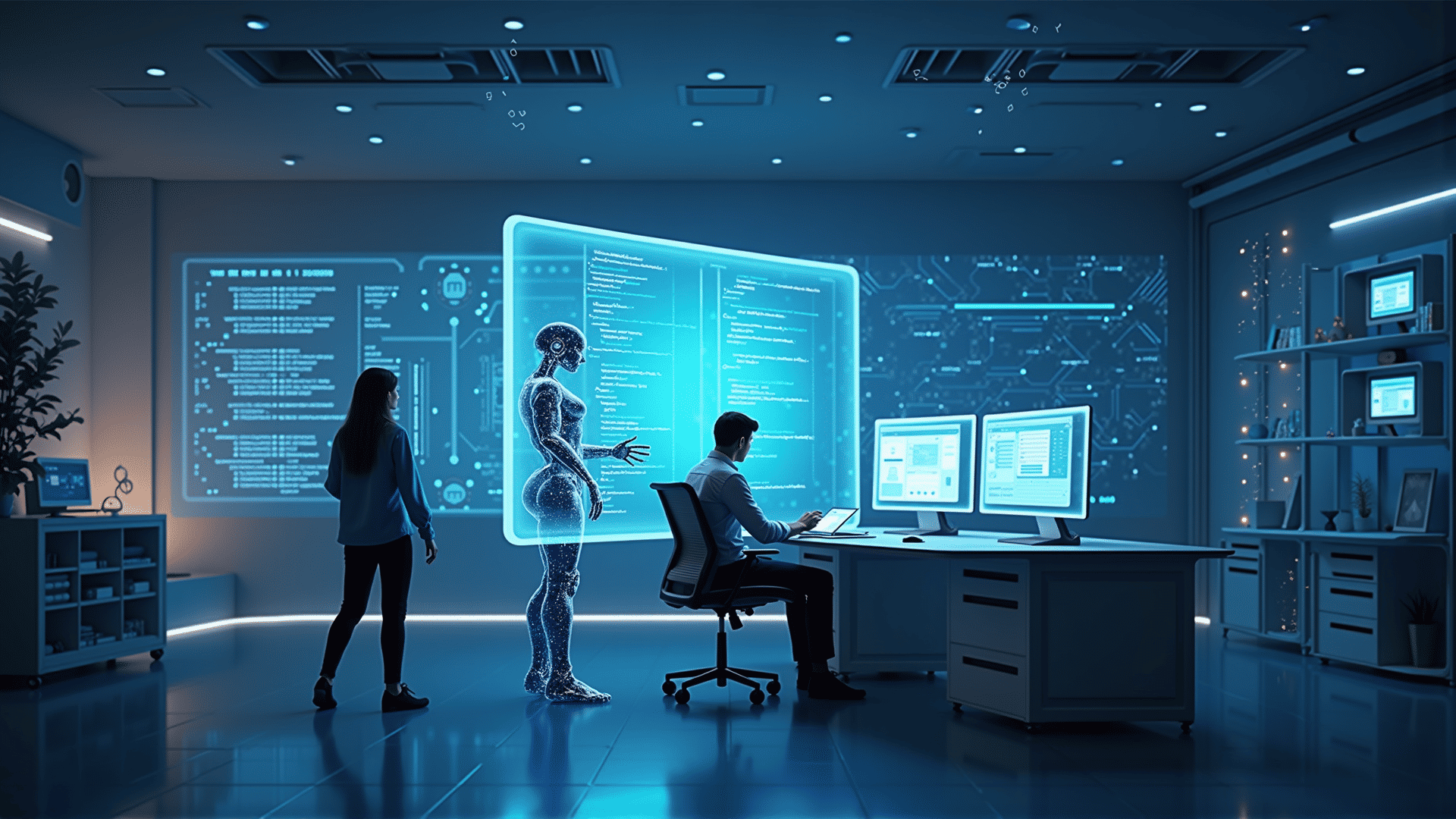Artificial intelligence (AI) is rapidly reshaping the landscape of software development, promising a future where complex coding tasks are streamlined and innovation is expedited. The integration of AI in development processes has become a catalyst for increased efficiency, improved accuracy, and enhanced creativity, pushing the boundaries of what was once thought possible.
One of the most significant impacts of AI in software development is the automation of routine tasks. Machine learning algorithms can analyze codebases, identify patterns, and suggest improvements, drastically reducing the time and effort developers spend on debugging and refactoring. Tools powered by AI help in detecting vulnerabilities and ensuring code quality, allowing developers to focus more on the creative aspects of software design and less on mundane, repetitive tasks.
AI-driven code generators are another innovation changing how software development is approached. These tools allow developers to generate code snippets or entire modules based on high-level descriptions of functions. This not only speeds up the development process but also democratizes coding, enabling those with less programming expertise to participate in the creation of software solutions.
Hyperunit, at the forefront of this paradigm shift, is leveraging AI technologies to transform the development ecosystem. By integrating AI into their development processes, Hyperunit aims to propel productivity and foster innovation. Their approach involves using machine learning models to optimize code deployment, ensuring that applications are not only developed faster but are also more reliable and scalable from the onset.
Furthermore, AI assists Hyperunit in enhancing user experiences through predictive analytics. By gathering and analyzing user data, AI models can predict user needs and behaviors, allowing Hyperunit to create more intuitive and personalized software products. This customer-centric approach leads to software that is not only more effective but also more engaging for end-users.
In terms of collaboration, AI tools are opening up new avenues for remote and distributed teams. With smart communication tools and AI-powered project management systems, Hyperunit can maintain seamless coordination and progress tracking, ensuring that projects are delivered on time, regardless of where team members are located.
Despite its transformative potential, the integration of AI in software development is not without challenges. Concerns about data privacy, algorithmic biases, and the ethics of autonomous systems need careful consideration. Hyperunit is actively addressing these issues by prioritizing transparency and accountability in their AI-driven projects, ensuring that ethical standards are upheld throughout the development lifecycle.
Looking to the future, the role of AI in software development is likely to expand even further. With advancements in natural language processing and computer vision, we can anticipate more sophisticated tools that understand and process human language and interpret visual data, further bridging the gap between human intent and machine execution.
In conclusion, the future of AI in software development is promising, with its potential to revolutionize how we create and interact with technology. Hyperunit is one of the leaders in harnessing this potential, pushing the boundaries of innovation and setting new standards in the industry. As AI continues to evolve, so too will its role in empowering developers and enriching the digital experiences of users worldwide.
